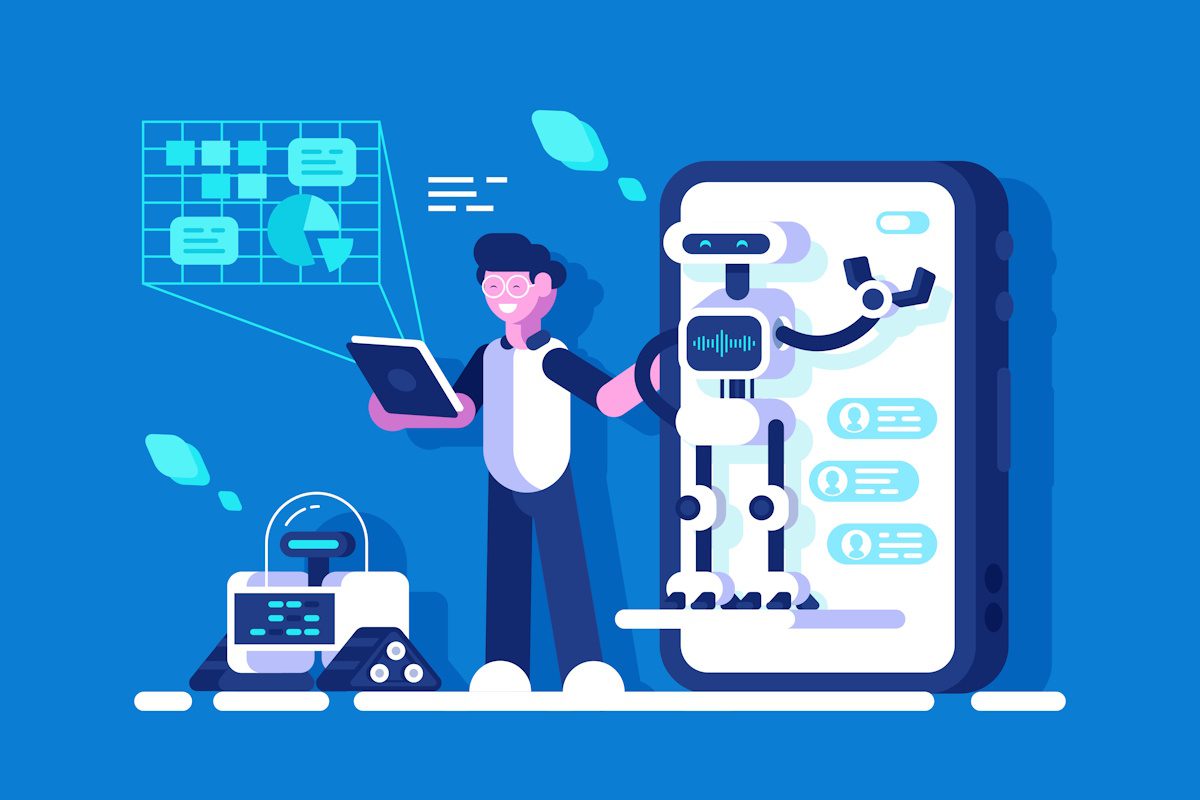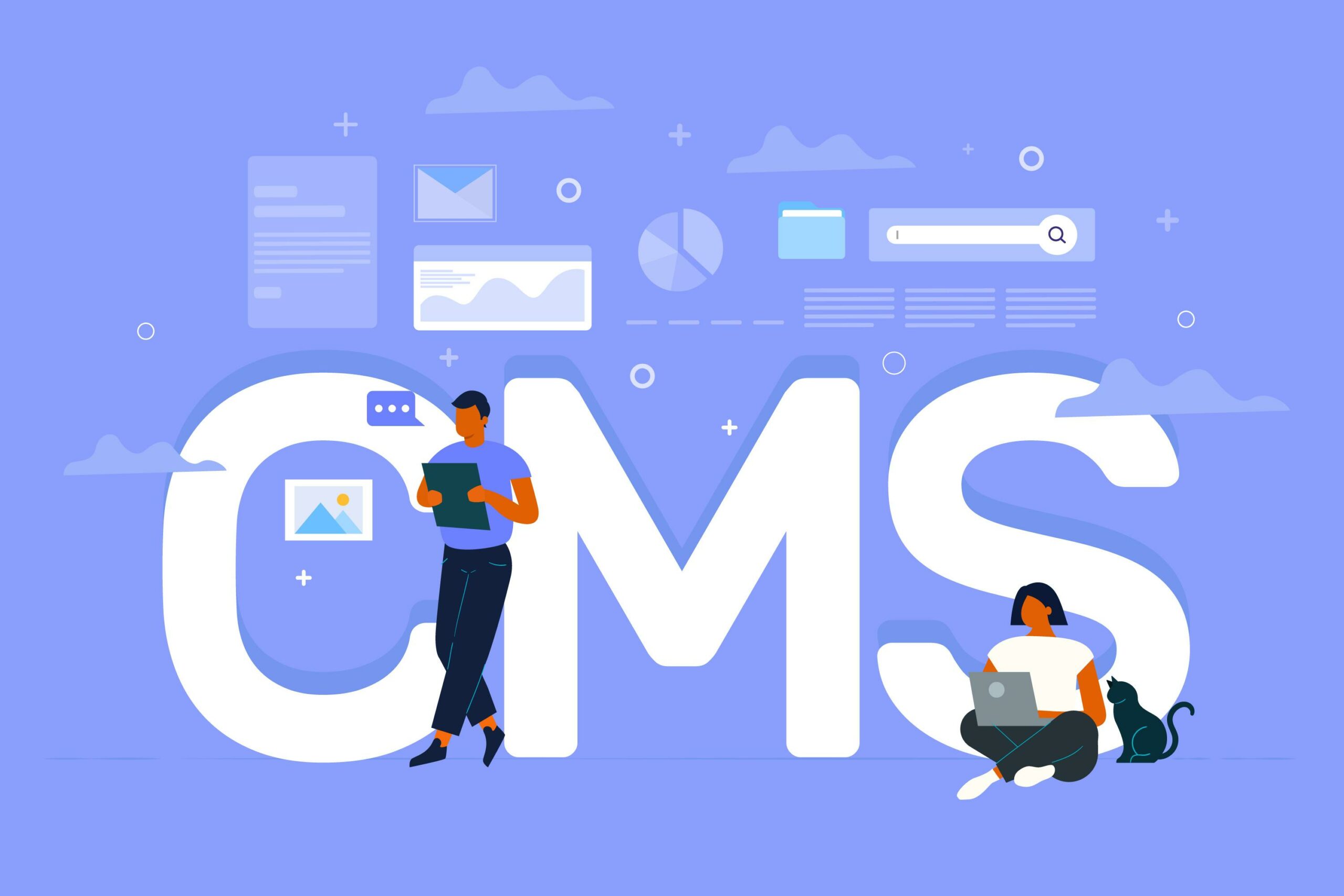
Artificial intelligence (AI) has been a game-changer across various industries, from healthcare to finance. Its impact is undeniably profound, bringing about innovative solutions and optimizing operations. One area where AI is making significant strides is mobile app development. This blog post aims to explore how AI is revolutionizing the creation of mobile apps, making them more intuitive, efficient, and secure. Whether you’re an app developer, a tech enthusiast, or a business leader, this comprehensive guide will provide valuable insights into the fascinating world of AI-driven app development.
Understanding AI in Mobile App Development
What is AI and Why is it Important for Mobile Apps?
Artificial Intelligence (AI) refers to a variety of technologies that allow machines to carry out functions usually needing human intelligence. These functions include learning, reasoning, solving problems, and comprehending natural language.
Examples of AI Integration in Popular Apps
Several popular mobile apps have successfully integrated AI to enhance their functionality:
- Spotify uses AI algorithms to analyze user listening habits and recommend songs tailored to individual preferences.
- Google Maps employs AI to provide real-time traffic updates, optimize routes, and predict user destinations.
- Siri and Alexa use natural language processing (NLP) to understand voice commands and perform a wide range of tasks.
Benefits of AI in Mobile App Development
Improved User Experience and Personalization
One of the most significant benefits of AI in mobile app development is its ability to improve user experience through personalization. By analyzing user behavior and preferences, AI can tailor content, recommendations, and functionalities to individual users, making the app more engaging and relevant. This level of personalization not only enhances user satisfaction but also increases user retention rates.
Enhanced Security Measures with AI Algorithms
Security is a very crucial aspect of mobile applications. AI algorithms can help in identifying and mitigating security threats by analyzing patterns and detecting unusual activities. For instance, AI can be used to develop sophisticated authentication methods, such as facial recognition and biometric scanning, which provide a higher level of security compared to traditional passwords.
Streamlined App Development Process
AI tools can automate various aspects of app development, such as coding, testing, and debugging. This not only speeds up the development process but also ensures higher accuracy and efficiency. By automating repetitive tasks, developers can focus on more complex and creative aspects of app development, ultimately leading to a more polished and robust final product.
Challenges and Considerations
Ethical Concerns and Data Privacy Issues
While AI offers numerous benefits, it also raises ethical concerns, particularly related to data privacy. The use of AI often involves collecting and analyzing vast amounts of user data, which can lead to privacy breaches if not handled correctly. Developers must ensure that their apps comply with data protection regulations and implement robust security measures to safeguard user information.
The Need for Skilled AI Developers
Integrating AI into mobile apps requires specialized skills and knowledge. The demand for skilled AI developers is high, and finding the right talent can be challenging. Companies may need to invest in training their existing staff or hire mobile app developers who are experts in AI to successfully implement AI in their apps.
Cost and Resource Allocation
Developing AI-powered mobile apps can be resource-intensive. It requires significant investment in terms of time, money, and technology. Businesses must carefully consider the cost-benefit ratio and ensure they have the necessary resources to support AI integration.
The Future of Mobile App Development with AI
Predictions and Trends for AI in App Development
The future of mobile app development looks promising with the continued advancements in AI technology. Some of the emerging trends include:
- Voice-Activated Interfaces: With the increasing popularity of voice assistants, more apps are expected to incorporate voice-activated interfaces, making interactions more seamless and intuitive.
- Augmented Reality (AR) and Virtual Reality (VR): AI combined with AR and VR can create immersive experiences, particularly in the gaming, education, and retail sectors.
- Predictive Analytics: AI-driven predictive analytics can provide businesses with valuable insights into user behavior, helping them make informed decisions and improve their strategies.
How Businesses Are Adapting to This Innovation
Businesses across various industries are recognizing the potential of AI and adapting their strategies accordingly. From startups to large enterprises, companies are investing in AI technologies to stay competitive and meet the evolving demands of their customers. By integrating AI into their mobile apps, businesses can enhance their offerings, improve customer satisfaction, and drive growth.
How to Get Started with AI in Your App
Practical Advice for Developers and Businesses
For developers and businesses looking to integrate AI into their mobile apps, here are some practical steps to get started:
- Identify the Use Case: Determine how AI can add value to your app. Whether it’s through personalization, automation, or enhanced security, having a clear use case will guide your development process.
- Choose the Right Tools and Technologies: There are numerous AI tools and platforms available, such as TensorFlow, IBM Watson, and Microsoft Azure. Choose the one that best fits your needs and capabilities.
- Invest in Training and Development: Ensure your team has the necessary skills to work with AI technologies. Consider providing training or hiring experts to bridge the knowledge gap.
Tools and Resources for Integrating AI into Mobile Apps
Several tools and resources can help you integrate AI into your mobile apps:
- TensorFlow: An open-source machine learning platform by Google that supports deep learning and neural network models.
- IBM Watson: A powerful AI platform that offers a range of services, including NLP, machine learning, and data analysis.
- Microsoft Azure: A cloud computing platform that provides AI and machine learning services, including pre-built APIs and customizable models.
Conclusion
In conclusion, AI is revolutionizing mobile app development by offering enhanced user experiences, improved security, and streamlined processes. While there are challenges to consider, such as ethical concerns and the need for skilled developers, the benefits far outweigh the drawbacks. For businesses and developers looking to stay ahead of the curve, integrating AI into their mobile apps is not just an option—it’s a necessity.








